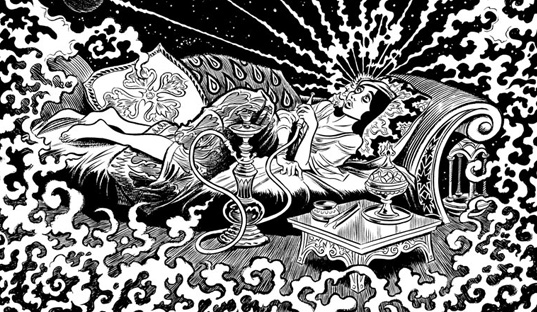One of the central truisms of being an artist is this:
You will have to do many drafts of your work.
It’s unavoidable. There is this myth among artists about how the masters of the craft were gifted from the beginning — that they went into their studios and produced works of greatness in a matter of hours. This is exacerbated by videos like this one, where it’s possible to watch a master like John Romita Sr. as he quickly busts out perfect drawings of Spider-man with a felt tip marker. Amazing, right? And deservedly so! John Romita Sr. has created comics since 1949 and has been drawing Spider-man since 1966. He’s had a lifetime of practice in order to reach a place where he can draw something amazing with minimal revisions. (more…)




